The Opposite of Butterfly Hunting hit UK bookshelves on September 14th of 2021, the literary debut of Irish actress/activist Evanna Lynch, commonly known as Luna Lovegood in the Harry Potter films. Like the author herself, I grew up loving Harry Potter to the point of obsession, and because I was hyper-fixated on the series this way, I knew before reading her book that Evanna was one of us. She grew up on Mugglenet discussion boards and cosplayed during the book releases. More so, I felt as though my kinship with Evanna was primal- we both struggled with an eating disorder in our teens and Harry Potter “got us through it.” Headlines have boasted “J.K. Rowling promised Evanna her acting career if she conquered anorexia!” for years, romanticizing their mythic pen-pal relationship and creating the narrative 1.) that anorexia can be solved by fame and fortune and 2.) that someone else can incentivize recovery from debilitating mental illness.
Evanna’s memoir is here to illustrate that the way we have perceived her is entirely untrue. As someone who has idolized her since I was nine years old, it was shocking to discover her for what felt like the first time through reading her memoir. The Opposite of Butterfly Hunting isn’t just the story of “How Evanna Lynch beat anorexia and became a movie star” it’s a story of unrelenting self-loathing, transforming into tolerance. Evanna’s retelling of her childhood, pre-Potter success, was surprisingly the majority of the book and contained by far the most grueling details of a childhood that I was embarrassed to relate to. She manages to illustrate the complexities of severe mental illness without romanticizing them or even demonizing it. What was so brave about this book was her complete unabashed honesty about what it is like to truly despise yourself, particularly as a child. Counteractively, she mentions the pride she had in her illness growing up and how she felt like her eating disorder was who she was and what she was best at. Throughout the book she criticizes the “one size fits all” approach to medically treating an eating disorder and illustrates the nuances of her own behavior. Her call to action: uncovering the complexities of a person’s psych and find solutions to phobias and mental deterioration rather than the blanket treatment that is “Patient A must gain weight.”
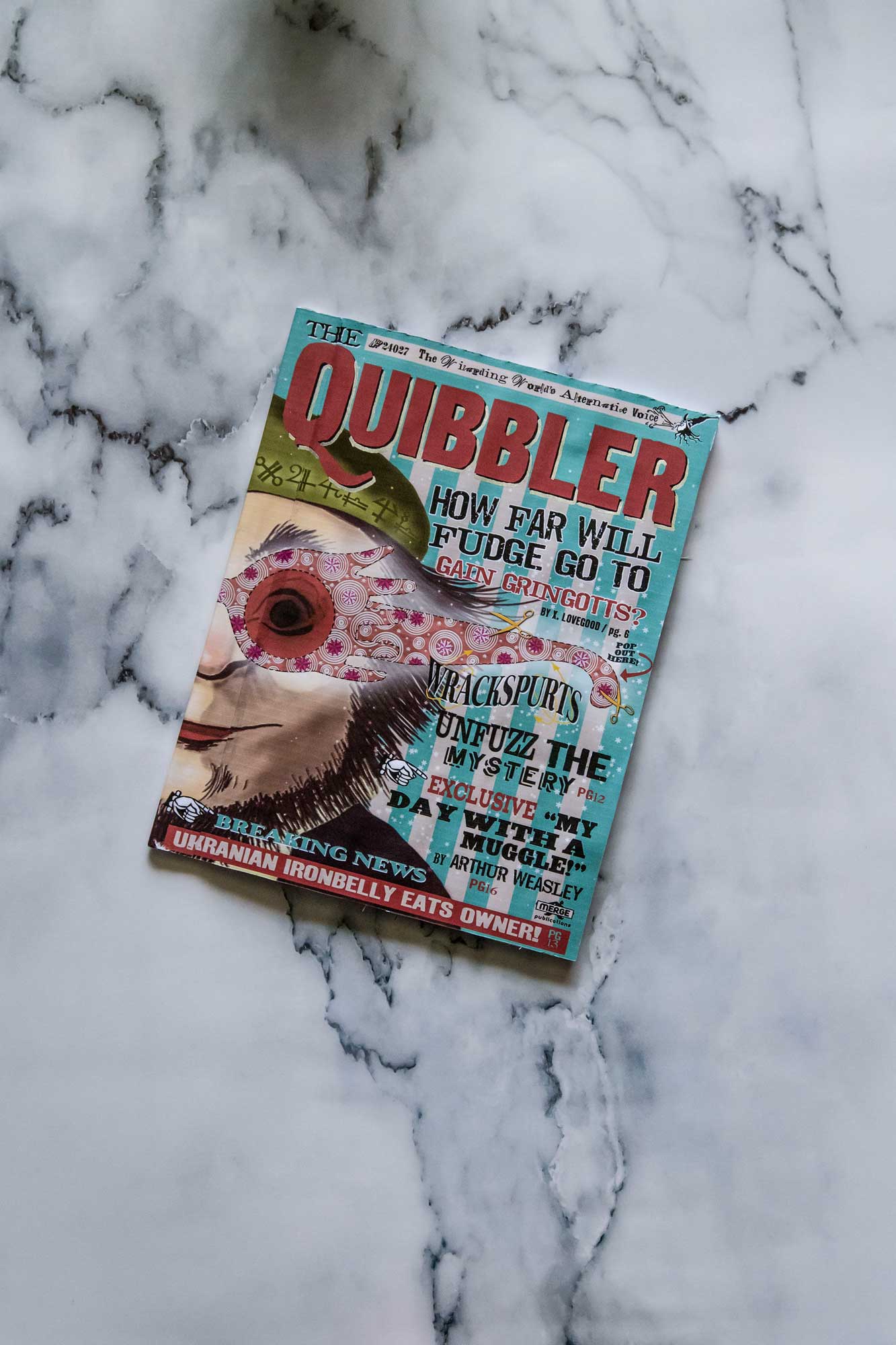
Within the context of the subject matter, this book is not for everyone. That is made abundantly clear in Chapter One when Evanna opens her book with “What is Rape?” A wild conjecture that then ten-year old Evanna formulated about sexual assault being flattering. The following excerpt is from Chapter One: “Wants the woman…. So much…. He just takes her. Wow! I think. How Flattering! Imagine being so beautiful, so attractive, so irresistibly desirable that someone can’t help themselves from having you! Fabulous, I think enviously, trying to picture these mythically intoxicating women whose bodies turn men into slavering sex-thieves.”
“Should I admire my own strength, the way I admired Evanna’s, or should I see her for what she truly is, someone just as gross and self-loathing as me?”
What this completely uncomfortable train of thought is bringing to light is a basic humanness to children that we often overlook. Children are conscious, sentient beings and while there are plenty of topics extremely uncomfortable to discuss with them, it’s important that we speak candidly to them, without reservation, lest we distort their morality. The majority of Evanna’s memoir is written about her experiences between the ages of ten and fifteen, years so formulative that even in her adulthood she seems to still be adjusting to the choices that she made at twelve. In the words of Toni Morrison, “couple the vulnerability of youth with indifferent parents, dismissive adults, and a world, which, in its language, laws and images, re-enforces despair, and the journey to destruction is sealed.” 95% of people with eating disorders are within the ages of 12-25 as of 2021, and eating disorders have the highest risk of death compared to other mental illnesses. The most common misconception about minors with mental illnesses is that the behaviors deriving from the illness is an individual solely seeking attention or that the behaviors are “just a phase”, the reality being that the reprocutions of that illness can be permanent and detrimental.
Another common theme in the book was idolization. Evanna, like myself, grew up heavily idolizing the cast of Harry Potter, so much to the point where liking what they liked became a major part of her personality. Her world was shaken when she was casted as Luna Lovegood at fifteen and began working for Warner Brothers. A misconception about Evanna has been that she “is” Luna Lovegood; an idea that has been breathed to life by her coworkers on the films, when Evanna herself felt completely the opposite. She articulates that when reading Luna’s character, she was completely drawn by her and wanted to emulate her energy but found herself to be precisely the opposite of what makes Luna so special. An excerpt from Chapter Nine: “I longed to be like her but could never allow myself to relax into the most core, fundamental aspect of her being: her capacity for self-acceptance, which stretched itself into an ability to let everyone and everything—nature itself—just be. She allowed people and things to be just as they were, regarding and appreciating them precisely in that moment, that place. Where Luna blossomed and leaned into her natural, unaltered oddness, never tempering or muting it for the comfort or approval of others, I worked furiously to cover myself up with whatever resources were at hand- thinness, Harry Potter, aggressive hair dye, even a regrettable fake tan phase. I just could not trust myself to be as I was, even as I watched Luna do it and be wonderful at it.”
This aspect of the book had me teetering; as I have said, I have admired Evanna for years, yet completely despised myself. If we were so similar, how could I feel both? Should I admire my own strength, the way I admire Evannas? Or should I see her for what she truly is, someone just as gross and self-loathing as me? The answer to these questions is complicated.
After I finished the book, I was floored. I didn’t know how to evaluate how I felt internally, so I attempted to express myself in words. Less than 2,200 characters to be exact. It was October 20th in 2021 and “An Incomplete Bookshelf” was just an Instagram page for quick book reviews with less than 60 followers. I started the page to create the habit of reflecting on the books I read as a weekly writing exercise. Most of the reviews I wrote didn’t get published on the page, but because I felt such a strong connection to The Opposite of Butterfly Hunting that the brutally honest, poorly written blurb that I wrote behind tears at 2 in the morning somehow managed to make the cut. I fell into the vortex that is “the internet isn’t real, no one important is going to see this, and even if someone does, it’s not like anyone cares about my writing.” So, I wrote an extremely gushy “review” with too many adjectives and lots of fan-girl energy. I called her “relatable in an embarrassing and grotesque way.” And then I published it on the internet. Fuck it, right? It’s not like she’s gonna see it, right? Wrong.
Evanna did read my original review of her book and she was kind enough to reach out to me about what I wrote and gave me some extremely encouraging feedback. She even said she liked that I called us both embarrassing and grotesque. When it first happened, I called my parents and my sisters and my friends to tell them about it like I had won the Pulitzer Prize. I cried because the 9-year-old version of me couldn’t believe Evanna wanted to talk to me and liked my work. I was histrionic and ridiculous, but I needed that reassurance, in honesty. I thought my friends were just being nice when they said they liked my writing or encouraged me to develop an Incomplete Bookshelf more, but here was this real author, this real artist smiling down on me.
It was like I forgot everything I had learned from her book! She isn’t any more or less real of an artist than I am. She’s just a person. A person that is flawed and talented, self-deprecating and accomplished, just like me. And while I appreciated her kind words about my form of expression, she probably feels the same way towards me expressing understanding and appreciation towards her words. It’s so funny how it loops back around and how we can feel as though fame or the internet or money separates us, the reality being that if you look closely, you can see when someone is genuine. My experience with The Opposite of Butterfly Hunting has felt relentless and instructive, meaning that this book is something I will carry with me for a long time, knowing that it will continue to be formative towards my growth. I’ve thrust it into the hands of dozens of friends hoping it can comfort them or guide them to a deeper meaning of “recovery.”
While I write this, an Incomplete Bookshelf is still just an Instagram page. But it’s being developed into a real website. This piece will be launched with the website and while I don’t feel like a “real author” yet, Evanna made me feel like a real writer. And her book made me feel like an authentic human being whose reactions and feelings are valid with experiences that aren’t as isolating.
So, to Evanna and anyone else who has cared about an Incomplete Bookshelf while I underestimated it, thank you.


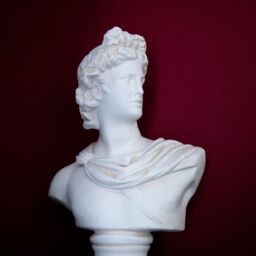
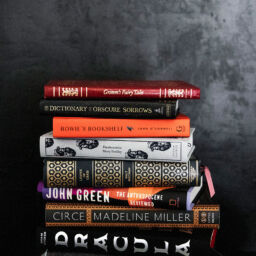
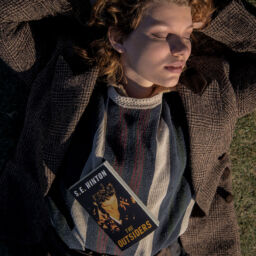
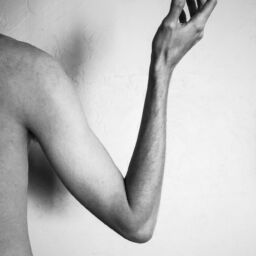

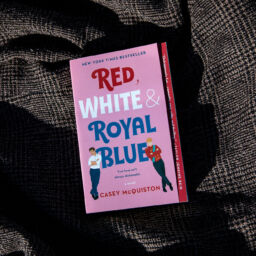

Such a good review! Definitely adding this book to my reading list.